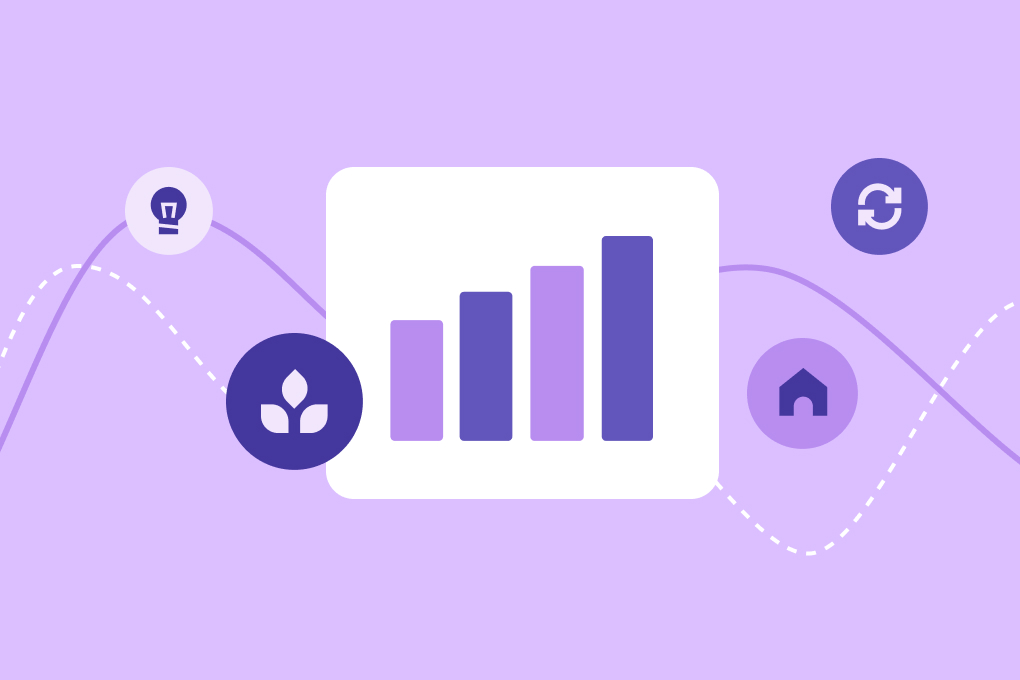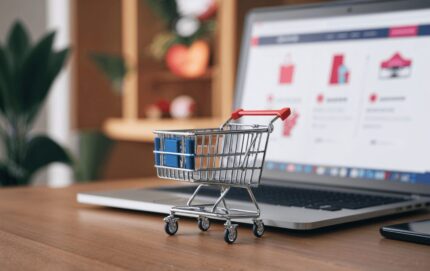With loadshedding being an undesirable consistent reality in South Africa, it’s now more important than ever for businesses to have a strategy in place to not only mitigate the impact of power disruption, but to also foster long-term sustainability. In a recent SME Sustainability Survey carried out by our Easy Advance partner Retail Capital, over 51% of responders said the energy crisis has had the biggest impact on their business (with COVID-19 coming in at 44%), demonstrating the negative impact the power crisis is having on our economy.
In this blog post, we’ll explore five ways to make your business more sustainable and resilient in the face of loadshedding. By adopting these strategies, you’ll hopefully be able to drive long-term growth and contribute to a brighter South Africa.
1. Embrace renewable energy
One of the most effective ways to tackle loadshedding and reduce your business’ dependence on the electrical grid is to invest in renewable energy sources. Solar power, in particular, holds potential in South Africa due to our abundant sunshine.
By installing solar panels on your premises, your businesses can generate its own electricity and even feed excess power back into the grid, earning revenue and reducing your business’ carbon footprint. The sun’s energy can literally become a catalyst for both sustainability and financial rewards.
Just make sure to do your research into the different service providers in your area and the costs involved, as it may take a while to break even.
2. Implement energy efficiency measures
Reducing energy consumption is a smart choice for sustainable growth, even if we weren’t living with loadshedding. Implementing energy-efficient practices can significantly lower electricity bills and, according to the government, minimise the impact of power outages.
It’s worth conducting energy audits to help identify areas of improvement, such as:
- Upgrading to LED lighting
- Using energy-efficient appliances
- Optimising heating, ventilation and air conditioning (HVAC) systems
- Adopting smart technologies for monitoring and controlling energy usage
These steps will not only conserve resources but also demonstrate your commitment to sustainability.
3. Adopt a loadshedding preparedness plan
By developing a comprehensive loadshedding preparedness plan, your business can minimise disruptions and maintain operations during power outages.
Creating backup power solutions, such as uninterruptible power supply (UPS) systems or generators, ensures minimal downtime and preserves customer satisfaction. Make sure to prioritise critical operations and equip them with backup power so that your business can thrive even when faced with challenging circumstances.
4. Promote remote work and flexible hours
If your business allows it, encouraging remote work and flexible hours can help your business cope with loadshedding by reducing the overall energy demand during peak periods.
Embracing digital collaboration tools and promoting remote work not only minimises the need for physical office spaces but also contributes to a healthier work-life balance for employees. One of the few positives to come out of the COVID-19 pandemic is how remote work had to happen literally overnight. Since then, a large percentage of the working force quickly learned how to be productive and accountable from the comfort of their own home.
Remote work also has the added benefit of reducing traffic congestion and associated carbon emissions, which is obviously good for everyone’s stress levels and for the environment.
5. Emphasise sustainable supply chain practices
According to Retail Capital’s SME Sustainability Survey, over 85% of responders indicated that sustainability credentials are important when choosing suppliers, and it should be for you too.
Partner with suppliers and vendors who share your commitment to sustainability. This will help your business reduce its carbon footprint and assist in fostering eco-friendly practices throughout the value chain. Choose suppliers who embrace renewable energy, reduce packaging waste and prioritise ethical sourcing. This collaborative effort will create positive change, enhancing your business’s reputation and contributing to a more sustainable future.
Loadshedding presents a significant challenge for South African businesses, but it also offers an opportunity for you to embrace sustainability and foster long-term resilience. By adopting the suggestions above, your business can better navigate loadshedding as well as reduce your environmental impact.
Embracing sustainability is not just a necessity; it’s a strategic decision that can position your business as a leader in your designated industry while contributing to a greener future.




